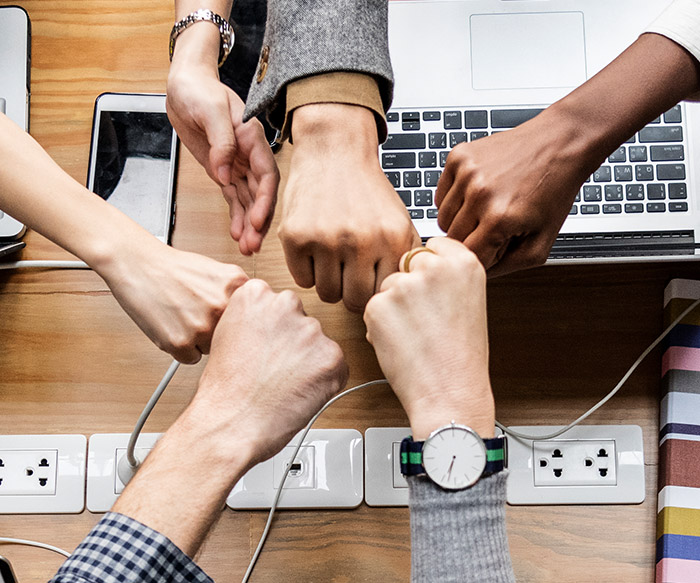P
ing-pong tables, beer taps and office beanbags will likely become obsolete for remote workers, but that doesn’t mean an end to office perks.
When we think of office perks, our mind might immediately go to all those snazzy extras you see in a big fancy office building. Beer on tap, table tennis, an in-office gym, music rooms, comfy beanbags, free snacks – the list is endless. But the list is also almost all office-based.
Most of these cannot practically be shipped out to each individual employee in their home now that they’re remote workers. But does that mean remote working marks the end of office perks? Well, it could be the end of the perks we once knew, but that might not be an entirely bad thing.
This was long before a pandemic forced much of the workforce into a remote working world and was arguably at the height of the fancy office boom full of bells and whistles. But even then, Baumgartner wanted a big warning label slapped on those snazzy perks.
“Perks are great, but they are not sufficient to ensure that employees truly thrive in the workplace,” she said. “While employee benefits and perks should be consistent with a company’s culture, they don’t define the culture.”
Beer on tap, table tennis, an in-office gym, music rooms, comfy beanbags, free snacks – the list is endless. But the list is also almost all office-based.
Most of these cannot practically be shipped out to each individual employee in their home now that they’re remote workers. But does that mean remote working marks the end of office perks? Well, it could be the end of the perks we once knew, but that might not be an entirely bad thing.



The Death of Office Perks
While some physical extras can be sent to employees to jazz up their home workspace, this will not be enough of a perk according to Kovi Fine, head of operations at online learning company Amphy.
“It’s no longer enough to send a pair of branded AirPods or a stipend for a monitor and hope for the best.”
Fine said perks should hit two main requirements. They need to be easily redeemable and they need to strengthen or create a company culture.“That means one-off goodies don’t hold the same value. They want something that is both sustainable long-term and unique, differentiating them in a jobseekers’ market.”
Fine also said employers are likely to use in-person perks as a way to entice workers back to the office. Examples of this include offering paid parking or fuel reimbursement to those who come back to the office or, more recently, the installation of beehives at a US investment company to give returning office workers a stronger connection to nature.
But Fine said the current situation of remote and hybrid working means perks that suit at-home workers will become more common.
But that isn’t straightforward. “It will become increasingly difficult to build or maintain a culture with status-quo in-person offerings. Nearly all of the companies we work with recognise the need for a long-term perk that works for all employees, regardless of their physical location.” Countless studies have shown it’s what employees want and in fact IWG research revealed half would quit their jobs if asked to return to the office five days a week,” he said.
For businesses with white collar workers, not embracing hybrid work now would be like not embracing email 20 years ago.”
“As long as there is remote or hybrid work, there will have to be perks that can create a unique office culture, even for employees primarily interacting in meetings over Zoom,” he said.
“Employees can attend a yoga class, learn chess from a grandmaster, practise a language, and so much more in their free time – with colleagues if they choose – which establishes a lasting bond and culture that can’t be bought with typical, one-off gifts.”
Outside of e-learning opportunities, Fine said benefits directly linked to employees’ home lives such as food and childcare, are going to be key.
“Working one full-time job while simultaneously taking care of and entertaining the kids as schools are shuttered is arduous and stretches employees who have kids to their limit. While e-learning can help with the burden of childcare by providing entertaining or engaging classes for kids, there is more that companies can do to help alleviate the burden on parents,” he said.
“Second is offering grocery deliveries, which might not build culture, but is becoming increasingly common. It’s a thoughtful perk, especially for parents, because it’s a convenience that directly eases the stressors of juggling childcare and distance learning while working from home while minimising the risk of exposure.”
All of these perks build a culture around employee wellbeing and creating a healthy work-life balance. Other perks and benefits can include a thoughtful approach to flexible hours.
Last year, Microsoft Ireland’s Cathriona Hallahan said the company was discussing how working days could be adapted in winter to ensure employees got the most out of daylight hours.
And while remote working perks will be key in the future of work, ensuring hybrid workspaces are fit for purpose will also be essential, according to Dixon.
“At the heart of hybrid working is ensuring employees come together regularly to collaborate as well as for team bonding,” he said.
“Technology is another vital component and it’s essential for companies to invest in this area to make sure employees are able to stay connected and be as productive as they would be in an office.”


